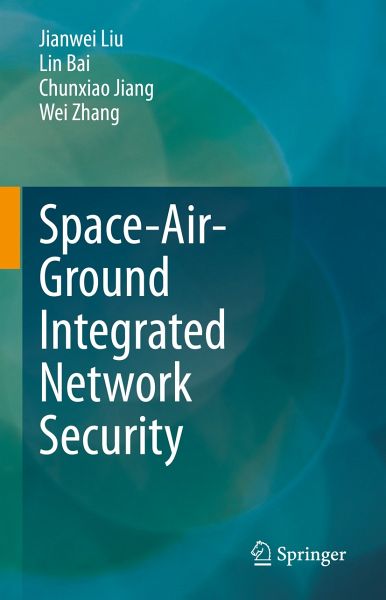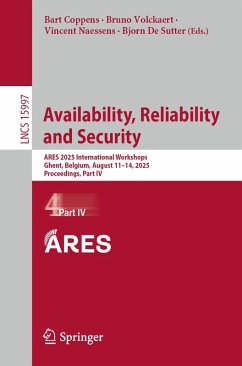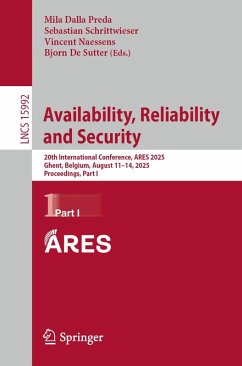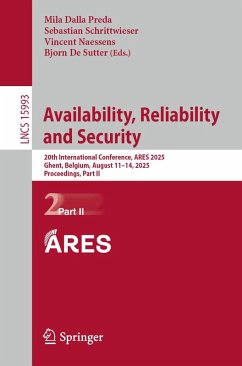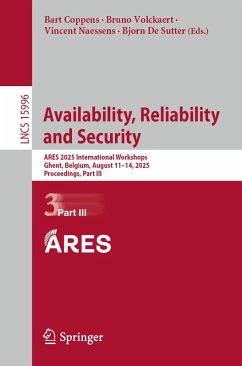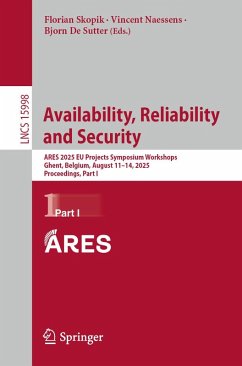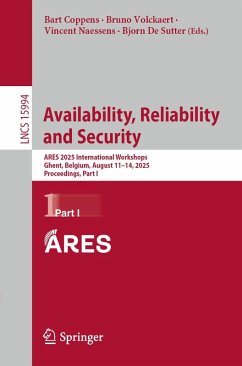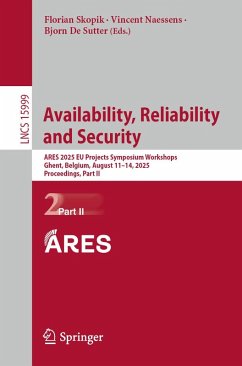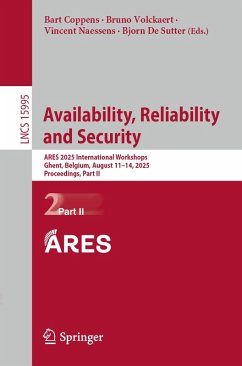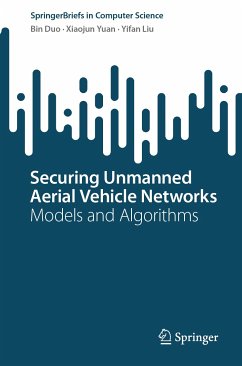Jianwei Liu, received the Ph.D. in communication engineering from Xidian University, China in 1998, and his B.S. and M.S. degrees in electronic engineering from Shandong University, China in 1985 and 1988. He is currently a professor and dean of School of Cyber Science and Technology, Beihang University. His current research interests include cryptographic protocol design, security on wireless and mobile network, network security, and cryptography and its applications. He has published 7 books, 2 monographs and more than 200 papers in his research fields. He is a senior member of the Chinese Institute of Electronics, and managing director of the Chinese Association for Cryptologic Research, and managing director of Chinese Institute of Command and Control, and member of Teaching Steering Committee of Cyberspace Security of MOE, China, and member of the Academic Degrees Committee of the State Council. He has been awarded the first prize of technological invention of China. He is a expert obtaining the special allowance of State Council. He is a Member of the IEEE.
Lin Bai, received the B.Sc. degree in electronic and information engineering from the Huazhong University of Science and Technology, Wuhan, China, in 2004, the M.Sc. degree (Hons.) in communication systems from the University of Wales, Swansea, U.K., in 2007, and the Ph.D. degree in advanced telecommunications from the School of Engineering, Swansea University, U.K., in 2010. Since 2011, he has been with Beihang University, Beijing, China, where he is currently a Professor at the School of Cyber Science and Technology. His research interests include multiple-input multiple-output (MIMO), Internet-of Things (IoT), and unmanned aerial vehicle (UAV) communications. He has authored two books published by Springer in 2012 and 2014. He has served as a Symposium Co-Chair of IEEE GLOBECOM 2019 and a Tutorial Co-Chair of IEEE/CIC ICCC 2019. He is the founding Chair of IEEE ComSoc Wireless Communications Technical Committee Special Interest Group (SIG) on Space Air Ground Integrated (SAGI) Communications. He has served as an Editor for IEEE TRANSACTIONS ON SIGNAL PROCESSING and IEEE WIRELESS COMMUNICATIONS LETTERS, a Lead Guest Editor for IEEE Wireless Communications, and a Guest Editor for IEEE INTERNET OF THINGS JOURNAL. He is currently serving as an Editor for IEEE TRANSACTIONS ON WIRELESS COMMUNICATIONS and the Managing Editor for Journal of Communications and Information Networks. He is a Distinguished Lecturer of the IEEE Communications Society and the IEEE Vehicular Technology Society.
Chunxiao Jiang, received the B.S. degree in information engineering from Beihang University, Beijing in 2008 and the Ph.D. degree in electronic engineering from Tsinghua University, Beijing in 2013, both with the highest honors. From 2011 to 2012 (as a Joint Ph.D) and 2013 to 2016 (as a Postdoc), he was in the Department of Electrical and Computer Engineering at Universityof Maryland College Park under the supervision of Prof. K. J. Ray Liu. He is currently an associate professor in School of Information Science and Technology, Tsinghua University. His research interests include application of game theory, optimization, and statistical theories to communication, networking, and resource allocation problems, in particular space networks and heterogeneous networks. Dr. Jiang has served as an Editor of IEEE Transactions on Communications, IEEE Internet of Things Journal, IEEE Wireless Communications, IEEE Network, IEEE Communications Letters, and a Guest Editor of IEEE Communications Magazine, IEEE Transactions on Network Science and Engineering and IEEE Transactions on Cognitive Communications and Networking. He has also served as a member of the technical program committee as well as the Symposium Chair for a number of international conferences, including IEEE Globecom 2021 Symposium Chair, IEEE CNS 2020 Publication Chair, IEEE WCSP 2019 Symposium Chair, IEEE ICC 2018 Symposium Co-Chair, IWCMC 2020/19/18 Symposium Chair, WiMob 2018 Publicity Chair, ICCC 2018 Workshop Co-Chair, and IEEE ICC 2017 Workshop Co-Chair. Dr. Jiang is the recipient of the Best Paper Award from IEEE GLOBECOM in 2013, the Best Student Paper Award from IEEE GlobalSIP in 2015, IEEE Communications Society Young Author Best Paper Award in 2017, the Best Paper Award IWCMC in 2017, IEEE ComSoc TC Best Journal Paper Award of the IEEE ComSoc TC on Green Communications & Computing 2018, IEEE ComSoc TC Best Journal Paper Award of the IEEE ComSoc TC on Communications Systems Integration and Modeling 2018, the Best Paper Award from ICC 2019, IEEE VTS Early Career Award 2020, IEEE ComSoc Asia-Pacific Best Young Researcher Award 2020, and IEEE VTS Distinguished Lecturer 2021. He received the Chinese National Second Prize in Technical Inventions Award in 2018 and Natural Science Foundation of China Excellent Young Scientists Fund Award in 2019. He is a Senior Member of IEEE and a Fellow of IET. Wei Zhang, received his PhD degree in Electronic Engineering from the Chinese University of Hong Kong in 2005. He was Research Fellow at the Department of Electronic and Computer Engineering, Hong Kong University of Science and Technology in 2006-2007. In May 2008, he joined the School of Electrical Engineering and Telecommunications, The University of New South Wales, Sydney, Australia, where he is currently a Professor. His current research interests include space information networks, mmWave communications, and massive MIMO. Currently, he is Vice President of IEEE Communications Society. He is Editor-in-Chief of Journal of Communications and Information Networks and Area Editor of IEEE Transactions on Wireless Communications. He served as Editor-in-Chief of IEEE Wireless Communications Letters from 2016 to 2019. He also served as an Editor for IEEE Transactions on Communications (2015-2018), IEEE Transactions on Cognitive Communications and Networking (2015-2017), IEEE Journal on Selected Areas in Communications - Cognitive Radio Series in 2012-2014 and IEEE Transactions on Wireless Communications (2010-2015). He was Chair of IEEE Wireless Communications Technical Committee in 2019-2020 and Vice Director of IEEE Communications Society Asia Pacific Board from 2016 to 2021. He is Fellow of the IEEE and Fellow of the IET.
